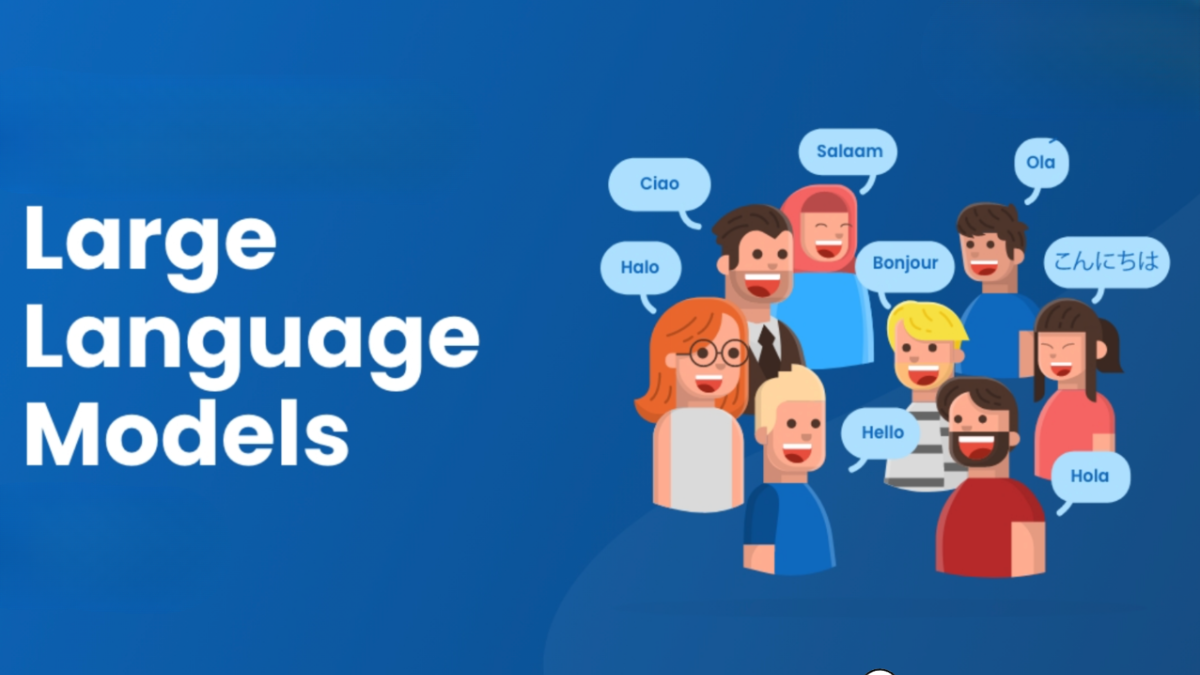What Skills Are Required to Deliver Large Language Model Development Services?
 Albert Peter
Albert Peter
As the demand for sophisticated AI solutions continues to grow, large language models (LLMs) have emerged as a pivotal technology in the artificial intelligence landscape. Companies and organizations are increasingly seeking to harness the power of LLMs for a wide range of applications, from chatbots to content generation and data analysis. Delivering high-quality LLM development services requires a unique blend of technical expertise, domain knowledge, and project management skills. This blog explores the essential skills needed to succeed in the field of LLM development.
1. Understanding of Natural Language Processing (NLP)
At the heart of LLM development is natural language processing (NLP), a field of study focused on the interaction between computers and human language. Professionals in this domain must have a solid grasp of NLP concepts, including:
Tokenization: The process of converting text into tokens, which are the building blocks for model training and inference.
Part-of-Speech Tagging: Identifying the grammatical parts of words within sentences to understand their roles.
Named Entity Recognition (NER): The ability to identify and categorize entities (e.g., names, locations, dates) within text.
Sentiment Analysis: Understanding and classifying the emotional tone behind words.
A deep understanding of these concepts enables developers to create models that understand, interpret, and generate human language effectively.
2. Proficiency in Machine Learning and Deep Learning
Large language models are a subset of machine learning and deep learning, and expertise in these areas is critical. Key skills include:
Machine Learning Algorithms: Familiarity with supervised and unsupervised learning algorithms, such as regression, decision trees, and clustering techniques.
Deep Learning Frameworks: Proficiency in frameworks like TensorFlow, PyTorch, or Keras for building and training neural networks.
Model Evaluation: Understanding how to assess model performance through metrics like accuracy, precision, recall, and F1 score.
Developers must also have experience with transformer architectures, the backbone of most modern LLMs, including architectures like BERT, GPT, and T5.
3. Programming Skills
Strong programming skills are essential for LLM development. The primary languages used in AI development include:
Python: The most widely used language in the AI community, Python's simplicity and extensive libraries (like NumPy, Pandas, and Scikit-learn) make it ideal for data manipulation and model development.
JavaScript: Increasingly used in deploying AI models on web applications, especially with frameworks like TensorFlow.js.
R: Beneficial for statistical analysis and data visualization, R is often used in academia and research-oriented projects.
Proficiency in these languages enables developers to write efficient, scalable, and maintainable code.
4. Data Management and Preprocessing Skills
Large language models require vast amounts of text data for training. Thus, expertise in data management is crucial, including:
Data Collection: Skills in web scraping, APIs, and data sourcing to gather relevant datasets.
Data Cleaning: The ability to preprocess raw text data to remove noise, correct inconsistencies, and handle missing values.
Data Annotation: Understanding how to label data effectively for supervised learning tasks.
These skills ensure that the data used to train LLMs is of high quality, improving the model's performance and reliability.
5. Domain Knowledge
While technical skills are critical, domain knowledge is equally important. Depending on the application of the LLM, developers should understand the specific industry they are working in. For instance:
Healthcare: Knowledge of medical terminology, regulations, and practices is essential for developing models that assist in patient care or research.
Finance: Understanding financial concepts and jargon is necessary for building models that analyze market trends or assist in trading.
Legal: Familiarity with legal terminology and processes is crucial for creating models that assist in contract analysis or legal research.
Having domain knowledge helps in tailoring LLMs to meet the unique needs of various sectors.
6. Ethics and Responsible AI
As LLMs can inadvertently produce biased or harmful content, an understanding of ethics in AI development is paramount. Skills in this area include:
Bias Detection and Mitigation: The ability to identify biases in training data and implement strategies to reduce them, ensuring fair and equitable AI systems.
Privacy Considerations: Understanding data privacy regulations (like GDPR) to ensure that models do not violate users' privacy rights.
Transparency: Knowledge of how to make AI decisions more interpretable, allowing users to understand how and why a model arrived at a particular conclusion.
Ethical considerations are essential to building trust in AI technologies and ensuring that they are used responsibly.
7. Collaboration and Communication Skills
Developing LLMs is rarely a solo endeavor; it often involves collaboration across multidisciplinary teams. Effective communication skills are vital for:
Working in Teams: Collaborating with data scientists, software engineers, UX designers, and product managers to deliver a cohesive product.
Stakeholder Engagement: Communicating technical concepts to non-technical stakeholders to align on project goals and requirements.
Documentation: Creating clear and comprehensive documentation to ensure that models can be easily understood and maintained by others.
Strong interpersonal skills foster a productive work environment and enhance project outcomes.
8. Continuous Learning and Adaptability
The field of AI, particularly LLM development, is rapidly evolving. Professionals must embrace a mindset of continuous learning to stay current with the latest research, tools, and techniques. This includes:
Staying Updated with Research: Regularly reading academic papers and attending conferences to learn about new advancements in LLMs and NLP.
Experimenting with New Technologies: Actively experimenting with emerging tools and frameworks to find innovative solutions to complex problems.
Networking: Engaging with the AI community through forums, social media, and professional groups to share knowledge and experiences.
A commitment to lifelong learning enables professionals to adapt to new challenges and maintain a competitive edge in the industry.
Conclusion
Delivering large language model development services requires a diverse skill set that encompasses technical expertise, domain knowledge, ethical considerations, and strong collaboration abilities. As organizations increasingly rely on LLMs to drive innovation and enhance user experiences, professionals in this field must cultivate these skills to create effective, responsible, and high-quality AI solutions. By investing in these competencies, developers can position themselves as leaders in the rapidly growing landscape of AI and natural language processing.
Subscribe to my newsletter
Read articles from Albert Peter directly inside your inbox. Subscribe to the newsletter, and don't miss out.
Written by

Albert Peter
Albert Peter
A seasoned full stack developer with a passion for sharing his expertise in the world of web development.Through my insightful and informative blog, I provides valuable insights, tips, and tutorials for fellow developers looking to master the art of full stack development.